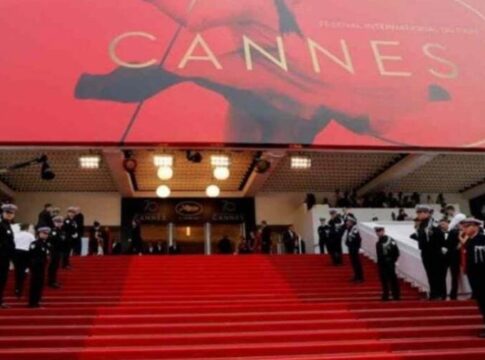The red carpets of the 78th Cannes Film Festival may glitter with global stardom, but this year, the spotlight turned meaningfully toward the Arab world not just for its talent, but for its cinematic vision, cultural depth, and political voice. A wave of Arab-led stories, platforms, and voices — from Iraq’s historic Camera d’Or win to Egypt’s groundbreaking media initiative — reshaped conversations at the world’s most prestigious film gathering, offering a bold declaration: the Arab film industry is not merely present; it’s leading.
At the heart of this cultural momentum was the Egyptian Media Hub pavilion, a dynamic first-of-its-kind platform at Cannes. Backed by the Egyptian Ministry of Culture and helmed by producer and cultural advocate Shahinaz El-Akkad, the initiative serves as a launchpad for new Egyptian voices and a magnet for global partnerships.
“The world has seen our golden age,” said El-Akkad in an interview. “Now it’s time to witness the new era — one defined by innovation, authenticity, and global reach.”
Thirteen key Egyptian entities from public and private sectors showcased capabilities in production, post-production, distribution, and storytelling. The pavilion buzzed with meetings between Egyptian filmmakers and international buyers, content creators, and diplomats, including Indonesia’s Minister of Culture Fadli Zon, who discussed bilateral collaborations in creative industries.
Global media outlets like Variety, Screen Daily, and the Associated Press highlighted the pavilion as a landmark move — positioning Egypt not only as a content hub but as a cultural gateway between Africa, the Middle East, and Europe.
This is not Egypt’s first foray into international film diplomacy. Following a strong presence at MIPCOM, where eight Egyptian companies garnered widespread attention, Cannes served as an evolution — a strategic declaration of cinematic ambition.
El-Akkad explained, “There are stories in Egypt — rooted in history, love, struggle, and resilience — that the world hasn’t seen yet. We’re not just making content. We’re shaping cultural dialogues.”
A key component of the initiative is a vision for cross-continental expansion, targeting Asian, African, and European markets, while promoting Egypt as a cinematic destination through its technical infrastructure, diverse landscapes, and seasoned talent.
The Egyptian delegation included film luminaries such as Mohamed Hefzy, Mariam Naoum, and Alaa Lashin, among others — representing a generational blend of creative vision. Their presence amplified Egypt’s strategy to build bridges between legacy filmmakers and emerging talent.
“I believe it’s about building systems that outlive festivals,” noted director Aly El-Araby, emphasizing the importance of sustainability in Egypt’s cinematic resurgence.
Beyond Egypt, the Arab world saw a landmark moment as Hasan Hadi, the first-ever Iraqi filmmaker selected at Cannes, won the Camera d’Or for his stirring debut, “The President’s Cake.” The film, a poignant tale of a girl trying to bake a birthday cake for Saddam Hussein under the weight of 1990s sanctions, moved audiences and critics alike.
In his emotional acceptance, Hadi dedicated the award “to every child who finds love and joy in war.” Variety called the film a “tragicomic gem,” while Deadline hailed it as a potential Oscar contender, possibly Iraq’s first.
The Arab creative force was also reflected in powerful narratives from Palestine and Iran.
Palestinian director Tawfeek Barhom won honors for his short film “I’m Glad You’re Dead Now”, which indirectly referenced the ongoing humanitarian crisis in Gaza. Twin filmmakers Arab and Tarzan Nasser, also from Gaza, won a directing award in the Un Certain Regard section for “Once Upon A Time in Gaza.” They used their platform to urge global awareness, echoing their mother’s plea: “Tell them to stop the genocide.”
Meanwhile, Iranian director Jafar Panahi took home the Palme d’Or for “It Was Just An Accident.” A film about trauma, justice, and personal reckoning, it marks Panahi’s third major European festival win — an extraordinary achievement made more potent given his history of censorship and imprisonment in Iran.
What’s emerging isn’t just a trend, but a movement. According to Cannes veteran and film consultant Nadine Abdel Ghaffar, “Arab cinema is no longer seeking validation. It’s offering perspective, authenticity, and powerfully human stories.”
Indeed, the Cannes marketplace hosted over 15,000 professionals and showcased 4,000+ films — and yet, the buzz around Arab narratives was unmistakable.
For Egyptian cinema, this year’s participation marks a pivot from nostalgic pride to future-forward ambition. For Iraq and Palestine, it is about visibility and truth. For Iran, defiance through art. And for Cannes — it’s a reminder that storytelling remains the sharpest tool for change.


